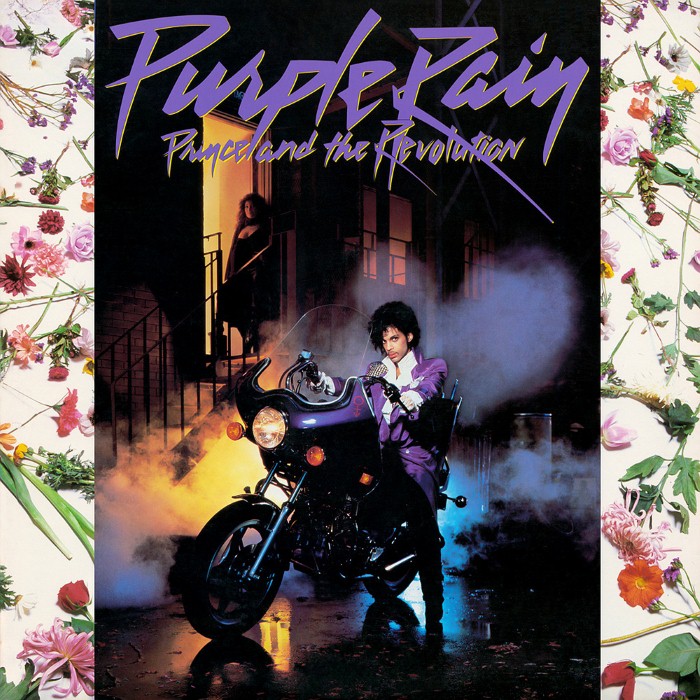Purple Rain by Prince

Purple Rain is the sixth studio album by American recording artist Prince and The Revolution and is the soundtrack album to the 1984 film Purple Rain. It was released on June 25, 1984 by Warner Bros. Records. Purple Rain is regularly ranked among the best albums in music history. Time magazine ranked it the 15th greatest album of all time in 1993, and it placed 18th on VH1's Greatest Rock and Roll Albums of All Time countdown. Rolling Stone magazine ranked it the second-best album of the 1980s and 76th on their list of the 500 Greatest Albums of All Time. Zounds magazine ranked it the 18th greatest album of all time. Furthermore, the album placed 4th in Plásticos y Decibelios' list of The Greatest Albums of All Time. Finally, in 2007, the editors of Vanity Fair labeled it the best soundtrack of all time and Tempo magazine named it the greatest album of the 1980s. In 2012, Slant Magazine listed the album at #2 on its list of "Best Albums of the 1980s" behind only Michael Jackson's Thriller. That same year the album was added to the Library of Congress's National Recording Registry list of sound recordings that "are culturally, historically, or aesthetically important, and/or inform or reflect life in the United States." The two main songs from Purple Rain, "When Doves Cry" and "Let's Go Crazy", would top the U.S. singles charts and were hits around the world, while the title track would go to number two on the Billboard Hot 100. The 1000th issue of Entertainment Weekly dated July 4, 2008 listed Purple Rain at number one on their list of the top 100 best albums of the past 25 years. The RIAA lists it as having gone platinum 13 times over. To date, it has sold over 20 million copies worldwide, becoming the sixth best-selling soundtrack album of all time and one of the best-selling albums of all time.
<b>100 Best Albums</b> You can’t very well tell a story about a troubled artist whose difficult personality belies his musical genius without, you know, actual musical genius. In this sense, the soundtrack to <i>Purple Rain</i> began life with the highest degree of difficulty imaginable; the impossibility that its success could ever have been in doubt is the project’s greatest legacy. With half its tracklist comprising Top 10 singles, the soundtrack is what truly turned Prince Rogers Nelson from <i>just</i> big enough to get to star in a summer blockbuster based on his life to one of the most instantly recognisable and distinctive pop artists ever. This is no slight to the movie, which has its charms (shout-out Morris Day), as much as it’s a testament to Prince’s all-engulfing star power and genre-fluid/gender-fluid virtuosity—nine perfect, definitive pop-soul-dance-rock-R&B-funk-whatever-else songs that couldn’t help but swallow everything in their orbit. The brilliance of <i>Purple Rain</i> is how it stirs seemingly contradictory moods—lust, devotion, intimacy, alienation—into a brew where nothing can be separated from anything else. Prince makes trauma sound erotic (“When Doves Cry”) and salvation sound reckless (“Let’s Go Crazy”). His sexual escapades are spiritual, disorienting and almost psychedelic (“Darling Nikki”, “Computer Blue”), while his spiritual journeys are grounded in the mechanics of a guitar solo (“Purple Rain”). The album broke records and brains: Tipper Gore’s overreaction to the image of Darling Nikki masturbating to a magazine begat a congressional witch hunt debating the morality of pop music. Prince often drew comparisons to Jimi Hendrix for the way he mixed music that felt Black and white, sacred and profane. The reality is that he had no precedent then and no comparison now.
